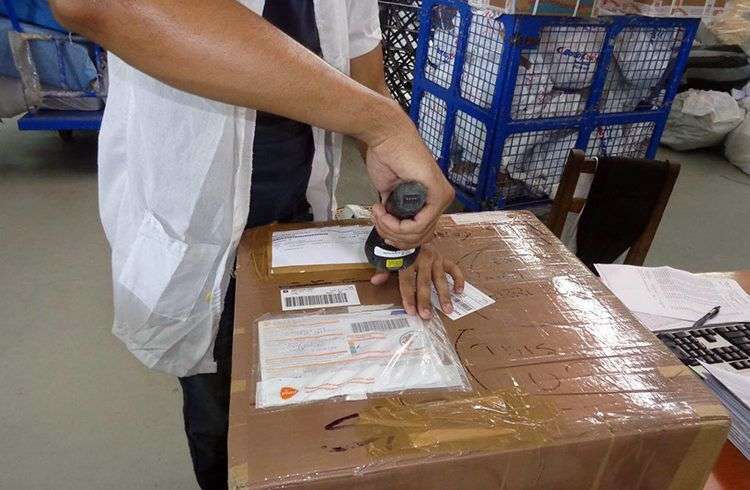When irregularities in the sending of parcels to Cuba seemed to be giving a break to, a crushing blow came: the new regulations of Customs. The valid essence of no allowing imports of commercial value attracted, however, the upsetting of more than one million Cubans living abroad and of the thousands of collaborators who serve throughout the world, as well as the millions of recipients of international parcels on the island.
But why measures taken to combat illegal acts arouse so much controversy? In the case of consignments by sea, air, postal and courier fundamental changes are summarized in the possibility of packaging only 10 kilograms (kg) per shipment, reducing from three to 1.5 kilos those tax exempt for recipients. Tariff payments to recipients are the equivalent of 20 CUC per kilogram after the first one and a half kilo and then they must pay 100 percent of the value of the parcel, that is, up to 150 CUC (170 dollars).
For the nearly 12,000 strong men medical mission in Brazil, the new restrictions are not encouraging. Dr. Julia Round Mizeida Reyes, from the State of Ceará, writes that “if we consider the 30 kilos of luggage in our return, almost all for personal use, is through mailings that I was trying to solve the shortcomings of my family, fact that was truncated, because a kilo and a half are just a pair of jeans and slippers. ”
Delays and irregularities of a few months ago now seem trifles compared to the impact that the new measures. “Despite the worrying delays and occasional loss it was great to send three kilos exempt of payment, because right now if I go beyond the limit, my family has to pay 20 CUC per kilogram, impossible for a Cuban worker” she says.
According to Dr. Yanet Miranda, regulations are affecting collaborators, not only in Brazil, “These shipments, we do them to save and also because some things you cannot buy them in Cuba. First, raise the kg to 20 CUC is abusive and disrespectful for all that we are working for our welfare and that of our country and we already contribute with more than half of our wages. ”
In Brazil, besides, there is another situation with shipments, as the price of 90 reais for three kilograms is the same as Cubans must pay for the minimum order of a kilogram and a half.
Doctor Androvis Pupo Garcia, in Minas Gerais, star of one of the odysseys to send parcels to Cuba, says that “if with the previous resolution shipments were already expensive for us, now with the new they will become even more expensive. I for one think not to send anything after September when the measures come into force. ”
Many Cubans still question whether these determinations came from people living in our country and knowing our reality. Dr. Nuria Rojas Guerrero believes that “are not clearly thought about the welfare of the people and the economy, on the contrary, making it seem as if someone wanted to bother, provoke outrage and make us less revolutionary.”
Rojas continues via e-mail that she does not understand how three kilograms can be considered commercial in nature and its reduction was the only possible measure: “We are ashamed to explain to the Brazilian postal workers why we make smaller parcels. Who can think that we send that minimum amount for it to spend months going a tortuous route, as Correos de Cuba officials explained to us, and they are exposed to neglect and theft before reaching their destination? “.
“Honestly, Rojas ends her letter, this has only brought chagrin and disappointment among us, for since we arrived in Brazil we have just received unpleasant news, and yet, we are still working and giving the best of us, because it’s what we know how to do “.
Under such conditions, it is foreseeable that in the early days the major emitters like the United States, Spain and the countries those have cooperation agreement with Cuba, like Brazil, will drastically reduce their shipments to the island. But then, a wave small package just over a kilo will begin to arrive, before the incredulous eyes of postal officials worldwide and tired eyes of employees of the Customs and Correos de Cuba, fixed on the complexity of processing many “mini-packs”.










